Inner-Kurdish relations are complex and have the potential to damage the overall Kurdish cause.
The civil war in Syria has opened new windows of opportunity for the Kurdish cause. After decades of nationalist struggle in Turkey, Syria, Iraq and Iran, the Syrian conflict may redistribute the cards.
While Iraqi Kurds gained regional autonomy in 1991, Syrian Kurds have taken advantage of the chaos caused by battles between pro-governmental and revolutionary forces to declare self-rule in their region in northeastern Syria. In Turkey, Prime Minister Recep Tayyip Erdogan has shown an increased willingness to negotiate with the Kurdistan Workers' Party (PKK) and its imprisoned leader, Abdullah Öcalan, since 2012.
Thus, today seems to be a historical opportunity for the Kurdish people to reach for its long-held dream of achieving independence. Logically, what we could be expecting is:
- Coordination and collaboration between different Kurdish groups across the region
- United front against national governments
Instead, what we are currently witnessing is:
- Growing rivalries between the Turkish Kurdistan Workers' Party (PKK) and the Iraqi Kurdistan Regional Government (KRG)
- Energy deals between the KRG and the Turkish government
- Rising tensions between the KRG and the Kurdish Syrian Democratic Union Party (PYD)
Therefore, the overall Kurdish project might be threatened by intra-Kurdish tensions, especially those between the two main Kurdish organizations: the Iraqi KRG and the Turkish PKK. This apparent paradox actually has rational explanations.
Indeed, as is often the case in the Middle East, relationships between different political or ethnic groups are shaped by a great sense of pragmatism. Thus, Kurdish groups are not merely concerned with achieving Kurdish autonomy. Undoubtedly, ideology is part of the equation. However, this is sometimes supplanted by other imperatives, notably political and economic ones.
A closer look at the PKK's and the KRG's strategies helps us understand why two brothers have chosen the path of confrontation rather than that of fraternity.
The Kurdistan Workers' Party (PKK)
For the PKK, the equation is quite simple. Its primary goal is to achieve autonomy for the Kurdish people in Turkey. To do so, it has fought an armed struggle against the Turkish government for nearly three decades. Since late 2012, an apparent lull has taken place.
After Prime Minister Erdogan announced he wanted to resume the peace process with the Kurds and initiated talks with Öcalan, the PKK's imprisoned political leader, the Kurdish organization declared a ceasefire in March 2013.
Yet today most of the Kurdish population remains very suspicious of the central government. They fear Erdogan's apparent conciliatory attitude is nothing but a political strategy aiming at stopping the Kurdish insurgency before the next municipal and presidential elections — which will be held respectively in March and August 2014.
According to some experts, armed struggle is likely to resume in spring 2014. In September 2013, the PKK stopped its withdrawal because it believed the Turkish government was not honoring the agreements made. As a result, opposition to the central government has been and is likely to remain the core component of the PKK's strategy.
The Iraqi Kurdistan Regional Government (KRG)
For the KRG, the picture is more complex. Undoubtedly, it is also concerned with Kurdish autonomy. However, it has been facing its own challenges, meaning it has adopted a different strategy.
Firstly, Iraqi Kurds have achieved some degree of autonomy. Since the ratification of a new constitution in 2005, Iraqi Kurdistan has been recognized as an autonomous political entity, with its own government: the Kurdish Regional Government (KRG). It also has its own parliament and armed forces – peshmergas.
Consequently, the KRG's strategy primarily aims to consolidate and deepen its autonomous status. This is especially true since it has been facing constant pressure from the federal government, which is worried about losing complete control over the region.
Secondly, the KRG enjoys a good economic situation. The Kurdish region of northern Iraq is oil-rich. It has 45 billion barrels of proven reserves. Annual GDP has been averaging 10% for the last couple of years. Erbil, the region's capital city, is becoming the "New Dubai" as foreign companies invest in hotels and luxury companies.
Foreign investments have been facilitated by an advantageous fiscal policy: companies benefit from tax exemptions for the first ten years and are allowed to repatriate their profits. It is worth noting that Turkish companies represent more than half the foreign firms located in the region.
Compared to the rest of the country, Iraqi Kurdistan looks like an island of prosperity and security in an ocean of instability and economic difficulties. As a result, a major component of the KRG's strategy is also to preserve and develop its economic interests, even if this means partnering with Turkey.
Thirdly, Iraqi Kurdistan has historically been considered as the leader of the Kurdish cause. Since it has been the first Kurdish region to succeed in achieving autonomy, it has enjoyed great popular support across Kurdish territories. Current KRG President Masoud Barzani strives to be recognized as the nationalist leader of the Kurds. In this respect, another component of the organization's strategy is to maintain and expand its leadership.
Bones of Contention: Syria and Turkish-KRG relations
These two Kurdish organizations have a common goal: promoting the rights of the Kurds and achieving independence (or at least autonomy). But they both are embedded in geostrategic calculations as they face challenges of a different nature stemming from different sources. Their respective strategies are shaped accordingly. This sheds light on the ongoing tensions between the two organizations. There are currently two main bones of contention.
The first issue is related to the situation in Syria. As mentioned above, the Kurdish region in Syria has achieved de facto autonomy since government troops left the region. The Democratic Union Party (PYD) declared self-rule in November 2013 and it is now the most powerful Kurdish organization in Syria. Created in 2003 by Syrian PKK remnants, the PYD is affiliated with the PKK and is one of its most important allies.
Yet the Iraqi KRG does not approve of this relationship. First, it is hostile to the PYD because it has excluded from power some Kurdish groups close to Barzani. Second, the KRG is afraid that this newly-born cross-border Kurdish axis represents a threat to its own political leadership.
The second issue is concerned with a rapprochement between the KRG and the Turkish government. Indeed, over the past few months Erbil and Ankara have initiated a new relationship, based on mutual understanding and tightened economic cooperation.
In November 2013, Erdogan and Barzani met in Diyarbakir, the capital city of Turkish Kurdistan. This was an unprecedented historical event. Later on, they also signed a multi-billion dollar oil deal.
For the PKK, this new relationship is like a knife in its back. While the KRG is supposed to be its Kurdish brother, it is now siding with the enemy. But for the KRG, it is the result of pragmatic calculations.
In political terms, getting closer to Ankara enables the Iraqi organization to tackle the influence of the PKK on its own territory. It is also a means to assert itself against the new PKK-PYD Kurdish axis. In economic terms, signing oil deals with Turkey increases the KRG's economic prospects and furthers its independence from Baghdad. Thus, Barzani's new friendship with Erdogan is in line with the KRG's overall strategy.
Inter-Kurdish tensions are damaging not only because they hinder the Kurdish national project. They also represent a gift to other regional actors eager to instrumentalize them. For the Turkish government, PKK-KRG rivalries are a godsend.
By allying with the Iraqi Kurdish government, Turkey shows openness towards the Kurds, presenting itself as a conciliatory and cooperative actor. But at the same time, it also weakens its most important domestic opponent: the PKK.
Today, the overall Kurdish project is at a crossroads. Regional events along with the emergence of new powerful Kurdish actors seem to provide all the necessary ingredients to give a dynamic impulse to the idea of an autonomous Kurdistan.
Yet Kurdish groups across the region lack a general view of the situation and still determine their strategies in response to direct, close and pragmatic issues. Therefore, it is likely that inter-Kurdish tensions will continue as long as self-interest will be the primary motto of most Kurdish organizations.
The views expressed in this article are the author's own and do not necessarily reflect Fair Observer’s editorial policy.
Image: Copyright © Shutterstock. All Rights Reserved
1 comment
Leave a comment
You must be logged in to post a comment.
Support Fair Observer
We rely on your support for our independence, diversity and quality.
For more than 10 years, Fair Observer has been free, fair and independent. No billionaire owns us, no advertisers control us. We are a reader-supported nonprofit. Unlike many other publications, we keep our content free for readers regardless of where they live or whether they can afford to pay. We have no paywalls and no ads.
In the post-truth era of fake news, echo chambers and filter bubbles, we publish a plurality of perspectives from around the world. Anyone can publish with us, but everyone goes through a rigorous editorial process. So, you get fact-checked, well-reasoned content instead of noise.
We publish 2,500+ voices from 90+ countries. We also conduct education and training programs
on subjects ranging from digital media and journalism to writing and critical thinking. This
doesn’t come cheap. Servers, editors, trainers and web developers cost
money.
Please consider supporting us on a regular basis as a recurring donor or a
sustaining member.
Will you support FO’s journalism?
We rely on your support for our independence, diversity and quality.



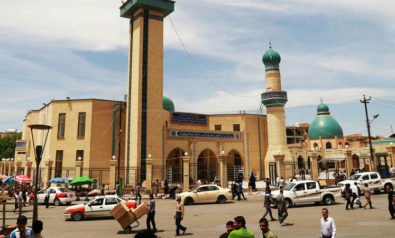

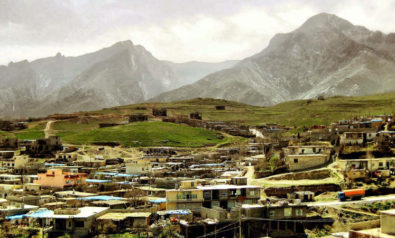

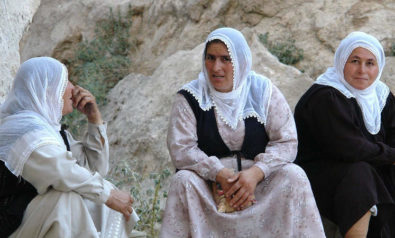

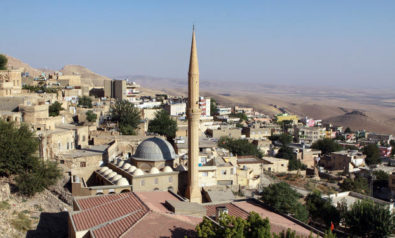
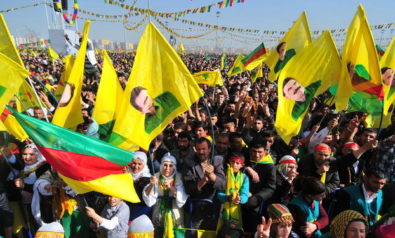
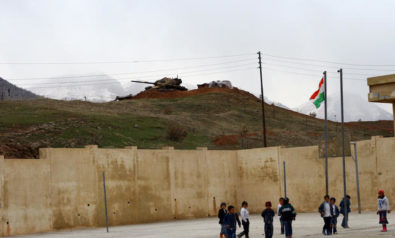

thibault
September 7, 2014
an autonomous kurdistan still seems a dream and maybe an additional factor of destabilization in a yet highly destabilized near east...